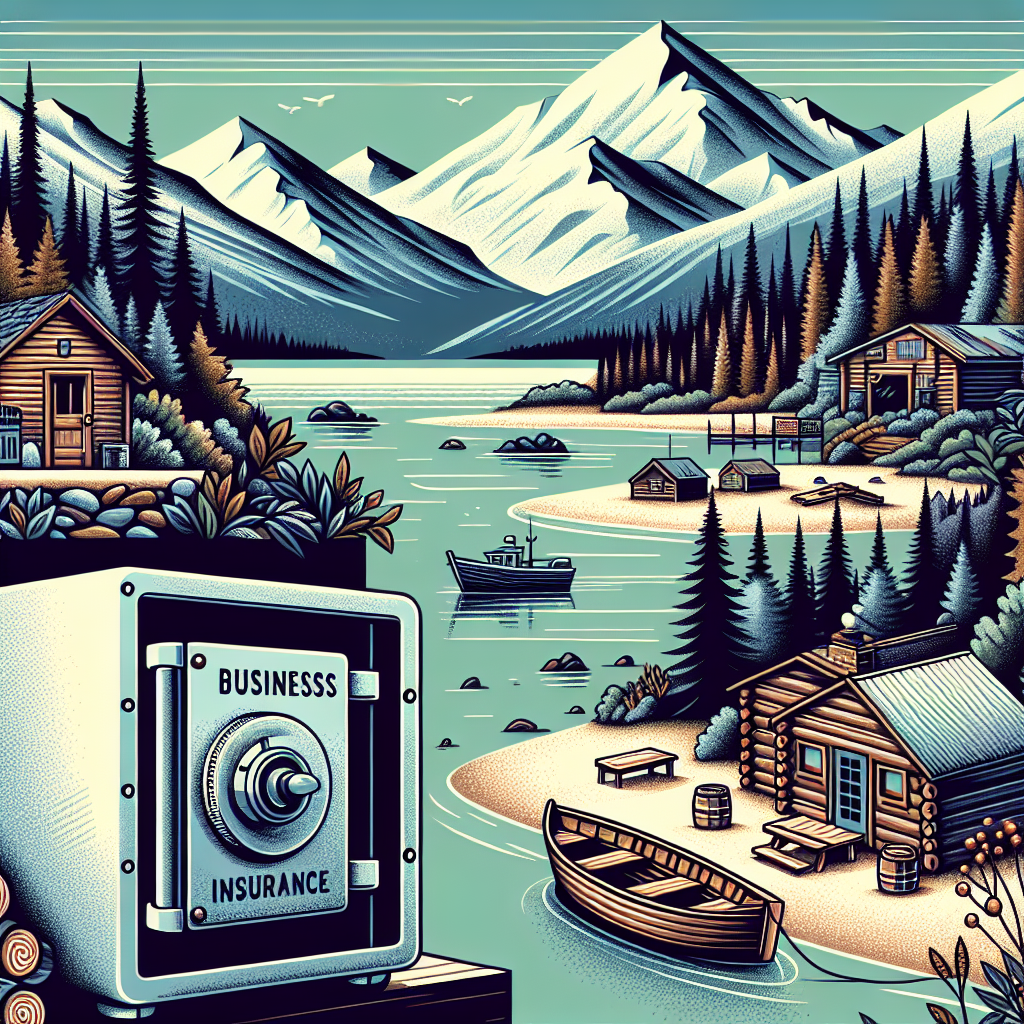Filed under Business Insurance on
Essential Guide to Business Insurance in Alaska

Navigating the complex landscape of business insurance can be daunting, but it is an essential task for entrepreneurs operating in the unique environment of Alaska. This guide aims to demystify the intricacies of business insurance for Alaskan businesses, providing you with the knowledge you need to protect your venture from unforeseen risks and liabilities.
Understanding the Importance of Business Insurance in Alaska
Operating a business in Alaska comes with its own set of challenges, such as harsh weather conditions, remote locations, and industry-specific hazards. These factors elevate the significance of having adequate business insurance. Without the appropriate coverage, Alaskan businesses expose themselves to financial instability and potential legal troubles.
Mitigating Risks Unique to Alaska
From extreme weather to rugged terrains, Alaska poses risks that are unique compared to other states. Business insurance helps mitigate these risks by providing coverage that addresses potential incidents like supply chain disruptions, property damage, and worker injuries. Securing the right insurance policy is crucial to ensure your business can weather any storm — literally and figuratively.
Legal Requirements and Compliance
Alaska mandates certain types of business insurance to comply with state laws. For example, most employers are required to carry workers' compensation insurance to cover medical expenses and lost wages for employees injured on the job. Understanding and fulfilling these legal requirements is vital in maintaining business compliance and avoiding penalties.
Types of Business Insurance Policies Essential for Alaska-Based Businesses
Selecting the appropriate insurance coverage involves understanding the various types of policies available and determining which ones are essential for your specific business needs.
General Liability Insurance
General liability insurance is crucial for protecting against claims related to bodily injury, property damage, and personal injury. Given the unpredictable weather and environmental conditions in Alaska, having this insurance can safeguard your business from accidents and incidents that could lead to costly lawsuits.
Commercial Property Insurance
In Alaska, where natural occurrences like earthquakes and floods are possible, securing a robust commercial property insurance policy is recommended. This coverage typically addresses damage to buildings, inventory, and equipment, helping businesses recover from unexpected disasters.
Workers' Compensation Insurance
As mentioned earlier, workers' compensation insurance is legally required for most Alaskan businesses. This policy provides financial protection by covering medical bills, rehabilitation costs, and lost wages due to work-related injuries. Investing in this insurance not only ensures compliance but also demonstrates your commitment to employee well-being.
Commercial Auto Insurance
Businesses operating in sectors such as transportation and logistics should consider commercial auto insurance. This insurance provides coverage for vehicles used for business purposes, protecting against liabilities from accidents, theft, and damage. In Alaska's challenging driving conditions, this coverage is indispensable.
Professional Liability Insurance
Also known as errors and omissions insurance, professional liability insurance is essential for businesses providing specialized services or advice. This coverage protects against claims of negligence or inadequate work, ensuring financial security if your expertise is ever called into question.
Industry-Specific Insurance Considerations in Alaska
Some Alaskan industries face unique risks that require tailored insurance solutions. Knowing what additional coverage may be necessary is critical for comprehensive protection.
Insurance for Fishing and Seafood Businesses
As a major contributor to Alaska's economy, the fishing and seafood industry faces particular challenges such as maritime accidents and regulatory compliance. Insurance policies tailored to this industry often include coverage for vessels, equipment, cargo, and liability specific to maritime operations.
Insurance for Tourism and Hospitality Operators
Alaska's vibrant tourism sector benefits from policies that address seasonal fluctuations and unique attractions. Comprehensive coverage for lodging facilities, hospitality venues, and guided tours ensures tourists' safety and mitigates company liabilities related to hospitality services.
Insurance for Oil and Gas Enterprises
Operating in Alaska’s oil fields necessitates specialized insurance due to the potential for environmental hazards and operational accidents. Coverages such as environmental liability and specialized equipment insurance are often critical for companies in this sector.
Tips for Selecting the Right Business Insurance Provider
Choosing the right insurance provider is as crucial as selecting the appropriate coverages. Here are some tips to aid you in this process:
- Assess Provider Reputation: Research potential insurers by looking at customer reviews, industry ratings, and their financial stability to ensure they can meet claims reliably.
- Understand Policy Details: Thoroughly review policy terms, conditions, and exclusions to fully understand what is covered and what is not.
- Seek Tailored Solutions: Work with providers who offer tailored coverage that aligns with your specific industry needs and risk factors.
- Compare Quotes: Obtain and compare quotes from multiple insurers to ensure you receive the most comprehensive coverage at a competitive price.
Staying Informed and Adapting to Industry Trends
Keeping abreast of industry trends and changes in legislation is crucial for ensuring that your business insurance policies remain adequate and comprehensive. Regularly reviewing your coverage with an insurance broker or consultant can help you adapt to evolving business landscapes and emerging risks.
Impact of Climate Change on Insurance Needs
The effects of climate change, especially in arctic and subarctic regions like Alaska, influence insurance needs as weather patterns become increasingly unpredictable. Businesses must consider the potential impacts on their operations and adjust their insurance strategies accordingly to maintain resilience.
Leveraging Technology in Risk Management
Technology is transforming the insurance industry, offering new tools for risk management and improving precision in underwriting. Businesses in Alaska can leverage technologies such as telematics and IoT sensors to better assess and manage risks, potentially lowering insurance premiums.
Conclusion
Securing business insurance in Alaska is not merely a legal formality but an essential step in safeguarding your business against a myriad of threats. By understanding the specific risks faced by Alaskan businesses and strategically selecting insurance coverages, entrepreneurs can focus on growth and innovation while being prepared for any challenges that come their way. Stay informed, choose wisely, and align your insurance needs with your business goals to ensure long-term success in the Last Frontier.





